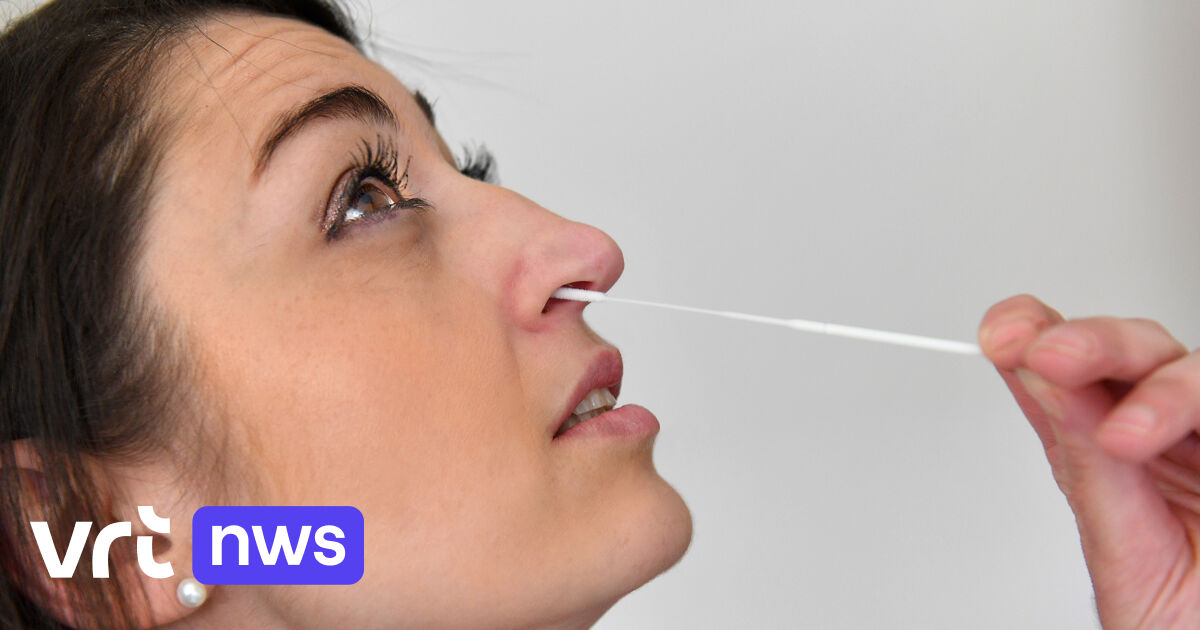First and foremost: which tests exactly exist?
A lot of tests are already being used to detect the corona virus. We list the most important ones:
–
–
- PCR-test: the most common test. A doctor goes deep into the nose or throat with a wiper, the test is examined in a laboratory. It is the most reliable test, but you have to wait a while for the result.
- Saliva test: the virus is searched here in someone’s saliva. Advantage: you do not have to see a doctor, you can do it yourself. The test still has to go to a lab to be examined there.
- Rapid test (the rapid antigen test): somewhat similar to the PCR test. Here, too, a doctor will use a – fairly long – nose swab. The test does not have to be sent to the lab. After an average of 15 minutes you have your result. These tests are – especially if you test negative – less reliable than the PCR tests.
- Self test (antigen): exactly the same as the rapid test, only the wiper is much shorter, so you can perform the test yourself. Again, the test does not have to be sent to the lab. It is about this type of testing that a decision has now been made.
–
–
In addition, there is also the serological self-test, which you could also purchase yourself. They are not allowed with us, but you can find them online. Only the result says very little. The serological test looks for antibodies in the blood and thus indicates whether you have been infected in the past. They don’t say anything about a current contamination.
–
–
Where and when will I be able to buy such a self-test?
The rapid tests will only be sold at the pharmacy, according to the Royal Decree. Some countries go further in this. In Germany, such tests have been for sale at supermarket chains Lidl and Aldi since the beginning of this month, but our country will not (yet) allow this. Reason? It is important that someone knowledgeable can explain how to perform the test.
–
–
In Germany, self-tests are sold in supermarkets
–
It is still unclear when the tests will be available. In any case, it takes ten days for the Royal Decree to come into effect and apart from that, there are still a few steps to be taken. Professor Herman Goossens – chairman of the testing working group – estimates that everything will be completed by mid-April and that the tests will be in the pharmacies by then.
–
–
Another thing: only the self-tests that have been approved by the pharmaceutical agency FAMHP will be allowed to be sold here. That list is now being worked on.
–
–
How reliable are those tests really?
The self-tests are just as reliable as the quick tests, precisely because they are exactly the same test. But wait a minute, wasn’t it said about those rapid tests that they are a bit less reliable than, for example, the PCR test? “That’s right,” says Goossens. “And so these self-tests – just like the quick tests – are not 100 percent accurate. So it could be that you test negative, but are still infected and therefore also infectious to others.”
–
–
In addition, you can also perform the test incorrectly, although according to Goossens it is “actually child’s play”. “Some people have trouble reading the result, because the dash is sometimes not completely clear. If you are in doubt, a PCR test should provide certainty.”
–
–
What if I test negative?
Simple: the same as everyone else. Just because the tests do not give a 100 percent guarantee, you will still have to adhere to all measures, such as keeping your distance and wearing mouth masks. “These tests will never replace the measures. That will be a difficult message,” says Goossens.
–
–
But why would you do such a test at all? “It’s a one-and-one story. With this you build in an extra bit of safety,” says Goossens. Suppose you want to meet up with friends or you want to visit your bomma – who is your cuddly contact. From now on you can test yourself quickly beforehand. If that test is positive, you stay at home. You would not have known that result otherwise, because you may not have any symptoms (yet).
–
–
“The more that is tested – also with self-tests – the more infected people we will detect. Every infection we find is one of the winners,” says Goossens. “We will also find super spreaders – people who have a lot of virus particles and therefore infect others more quickly.”
–
–
 © Zoonar.com/Patrick Daxenbichler – creative.belgaimage.be
–
What if the test is positive?
Then you will have to contact a doctor, according to the Royal Decree. “In concrete terms, you will therefore be asked to be tested with a classic PCR test, either in a testing center or at a doctor,” says Goossens. You can only be sure of your result with a PCR test.
–
–
Can the self-tests be used in the catering industry or at events in the long term?
When Prime Minister Alexander De Croo (Open VLD) said a few weeks ago that the cafes and restaurants can normally open their doors again on May 1, he also immediately said that “testing” could play an important role in this. You could also extend that line for events. Within a month, Flanders is organizing a test event, where everyone will be tested. In this way, the government wants to see whether testing can be an option to make more possible in the future.
–
–
But that seems easier said than done. “I don’t think it’s a good idea to use self-tests at events,” says Goossens. “If you have paid a lot of money for a concert, you really want to go there. Who is going to perform that test properly with the risk that he will not be admitted?”
–
–
Rapid tests – which are administered by a doctor – could be an option. “But thousands of people all test before they enter a room, doesn’t seem obvious to me either.”
–
–
–


